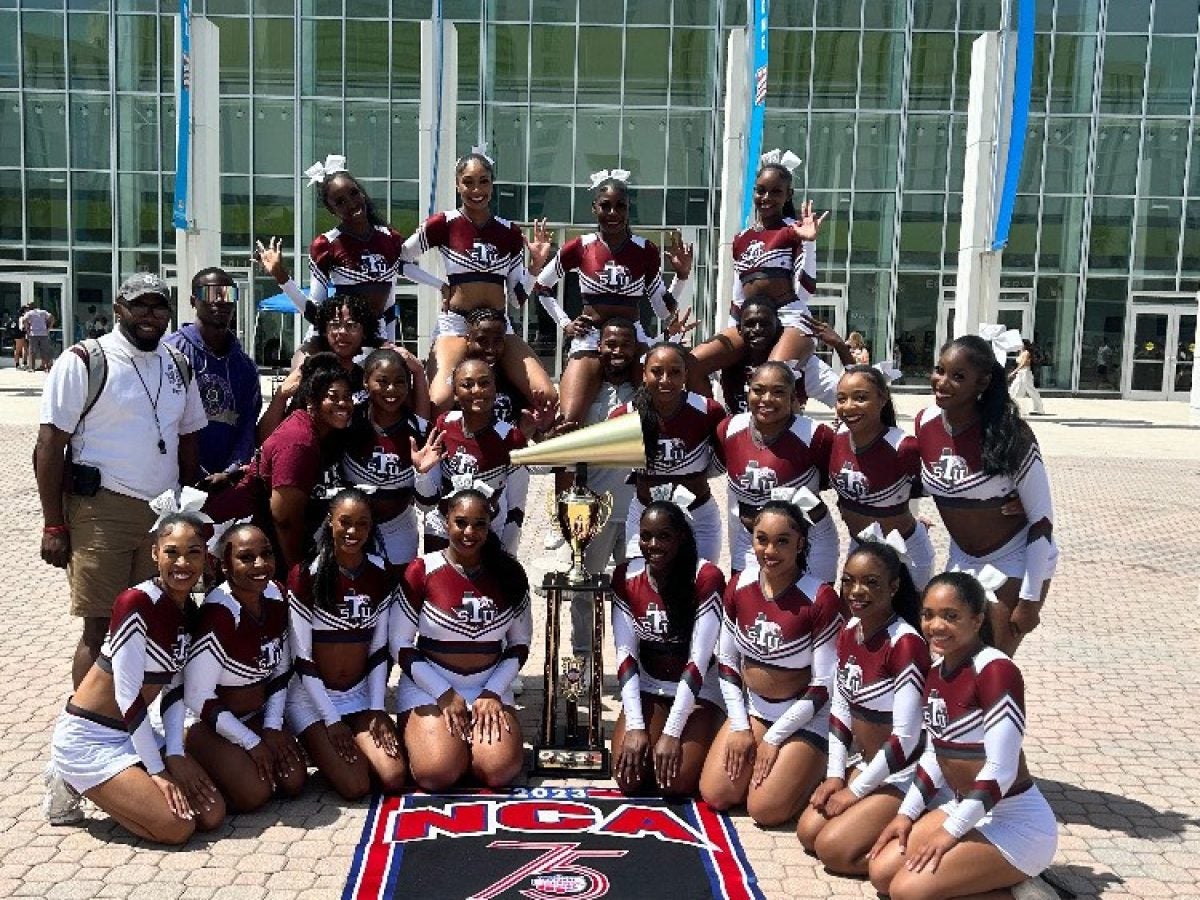
Last Friday, in Daytona Beach, Florida the Texas Southern University (TSU) cheerleading squad became the first HBCU to win a national collegiate cheerleading title, after placing “first in their division in the Cheer Spirit Rally competition at the NCA & NDA College National Championship.”
Post hearing their name called, Shontrese Comeaux, the Tigers’ Cheerleading Head Coach, was ecstatic and is slowly regaining her voice, but relayed that, “It’s surreal…It’s something that we aimed for that was always the goal to win nationals, but to be the first Black team and the first HBCU cheer team it comes with a lot. Fifty percent of me was confident the other 50 percent was like, ‘oh my god, we really did it.’”
The Tiger cheerleaders certainly brought it—putting in the work to clinch this victory on the heels of receiving a Gold Bid at NCA camp, all-American award, and overall most spirited at NCA camp last summer.
TSU was one of only ten HBCUs that competed, and was “the only one to take home a title,” posting “raw and performance scores of 96.1 and an event score of 95.5875, beating second-place Niagara University by nearly 11 points in the Cheer Spirit Rally category for Division I schools.”
This accomplishment comes on the heels of a long, and somewhat hidden legacy of Black cheerleaders that is quite distinct, which has long been a significant microcosm in the fight for racial justice—as early as the 1950s, Black students and parents protested and took “a strong stand to secure Negro cheerleader(s)” as one student aptly stated, “They want our boys to play on their teams and win the games for them but they don’t want our girls to cheer for them.”
As the African American Intellectual History Society (AAIHS) reports, “protests about Black cheerleaders allowed students and parents to critique integration itself, which required them to conform to white styles of cheerleading.”
AAIHS notes that “Black cheerleading emphasized rhythmic movements, stomping, clapping and ‘soul-swinging,’” insisting that “[c]alls for Black cheerleaders were equally about not having to assimilate to a one-sided integration that devalued their Black aesthetic and cultural expression.”
The abovementioned phenomenon and cultural appropriation in the sport was encapsulated by the Clover’s squad member Isis, when her character said, “Every time we get some here, y’all come trying to steal it, putting this blond hair on it and calling something different,” in the much beloved movie Bring it On.
ESSENCE salutes and congratulates both TSU and Impact Xtreme, an Oklahoma City cheerleading squad, who “made history as the first Black team to win the High School National Cheerleaders Association National Championship,” in 2021, for their historic accolades in the sport, which showcase the importance of Black athletes and representation as we continue to fight to move the needle forward.



![[EXCLUSIVE] SiriusXM Launches ‘Mary J. Blige Radio’ In Celebration Of Women’s History Month](https://www.essence.com/wp-content/uploads/2025/03/MJB-1920x1080.jpg)
